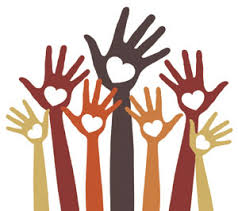Items to be Aware of When Seeking Community Work in Australia With a Criminal Record

While not everyone has a criminal history, we’ve all made mistakes in the past. Employers realize this. Consequently, they are not looking for the perfect person; they simply want to hire a person that can get the job done effectively.
However, in most job specifications, certain criminal records may be predictive of what might happen in the future. As a result, employers may be wary. Community workers, for instance, tend to work with vulnerable groups like children and the elderly. Therefore, hiring procedures for community work is usually stringent to ensure the safety of every part involved.
This post explores the things a person with a criminal record needs to know when seeking community work.
Understanding the Purpose of Background Checks
Background checks are usually carried out at the last stage of the hiring process.
The most common type of checks used by employers is a police check. A police check or criminal history check provides information about the criminal past of an applicant. It will reveal all disclosable convictions, where you’ve been found guilty. Spent convictions will not be released.
A ‘working with vulnerable people or children’ check is typically used for roles that involve working with children or the elderly. It assesses the risk the applicant poses to vulnerable groups based on their criminal past. Further information on working with children checks (WWC checks) can be found on the following link from the Australian character check website: https://www.australiannationalcharactercheck.com.au/working-with-children-checks.html
How Community Work Employers Determine the Suitability of an Applicant
There are different types of community roles. The peculiarity of the role influences how employers come to a verdict.
For instance, an applicant that’s a sexual offender or has drug-related charges cannot work in a field like youth work, child protection, and juvenile justice. Employers have no discretion and are required, by law, to reject such applicants. This is because the risk of psychological trauma such an applicant can potentially inflict on kids is not worth taking.

However, for roles in welfare agencies, an applicant cannot be turned down based on a criminal record, unless it directly demonstrates the applicant’s inability to succeed in the role. But if the applicant can function well in the role irrespective of the criminal record, such a record will have a minimal bearing.
If an applicant’s criminal history doesn’t prevent him or her from doing the job, employers have to use their discretion. Some of the things they may consider include:
- Nature and seriousness of the offence
- How long ago it was committed, and the applicant’s age at that time
- The circumstances surrounding the crime
- The applicant’s attitude towards the record.
The goal is to correctly assess the risk such an applicant might pose and see if it’s worth hiring them. Employers should carry out these obligations in guidance with the law
Keeping Your Options Open
Applicants with a criminal record have to be realistic when seeking community work. As we’ve highlighted, it might be impossible to secure jobs with direct contact with vulnerable clients. Further information on these types of frequently asked questions or concerns can be found on the Australian character check FAQs reference guide online.
So, it might be suitable to apply only for community roles that don’t involve working with the vulnerable. During the interview process, important applicants are open about their criminal record, if asked. But more importantly, they must demonstrate the actions they’ve taken to transform their lives since then.
Furthermore, looking for jobs in other fields other than community service as a backup might be a smart move.